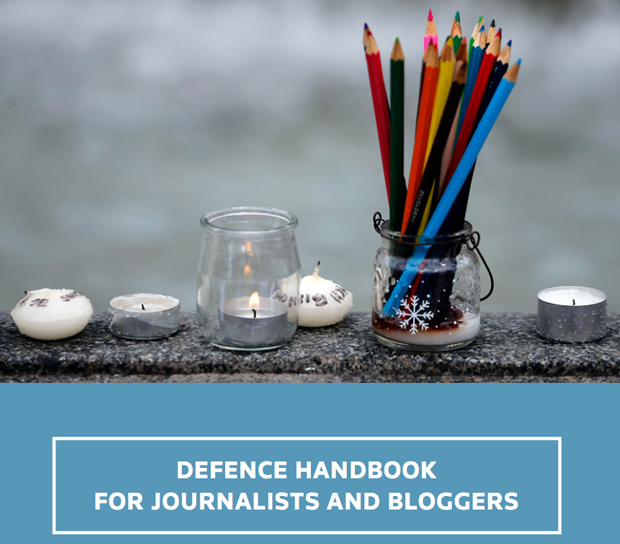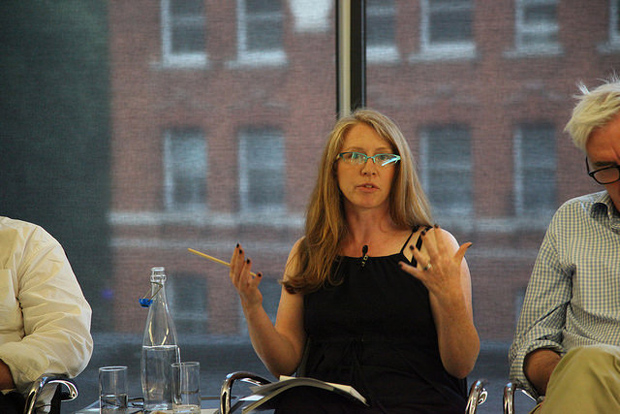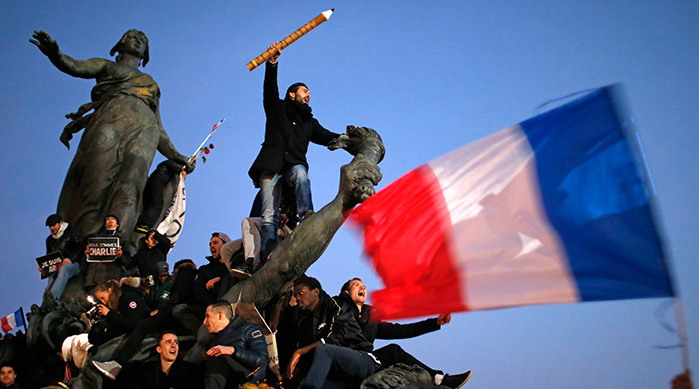Handbook on laws protecting free expression launched

The new Defence Handbook for Journalists and Bloggers from the Thomson Reuters Foundation, Reporters Without Borders and law firm Paul Hastings
A new handbook aims to provide journalists and bloggers worldwide with guidance on the international legal framework protecting their rights to freedom of expression.
Produced by the Thomson Reuters Foundation, Reporters Without Borders, and law firm Paul Hastings, the Defence Handbook for Journalists and Bloggers focuses on how international legal principles apply to journalists’ work. It also includes previous decisions and recommendations made by international and regional bodies and courts on aspects of freedom of speech.
“Journalists around the world are more and more under threat and often become targets,” said Monique Villa, CEO of the Thomson Reuters Foundation. “Terrorist groups, but also powerful lobbies and a number of governments are increasingly trying to censor the media, preventing opinion sharing and the release of vital information to the public. Now more than ever, journalists need to be brave, avoid self-censorship, and be aware that they can seek refuge in international law. This guide is a very powerful weapon.”

Index CEO spoke at the launch of the handbook (Photo: Thomson Reuters Foundation)
Index on Censorship chief executive Jodie Ginsberg spoke at the launch of the handbook, outlining the threats that Index has identified in its work mapping media freedom in the European Union and neighbouring countries. Since Index launched the project in mid-2014 more than 800 incidents have been reported to the map. Ginsberg described a climate of fear in which governments crack down increasingly on the media and free expression more generally, and cited a lack of awareness among some media professionals about the laws that protect them. “Uncertainty — when journalists don’t know their rights — leads to self-censorship,” she said.
Other speakers at the event in London included Christophe Deloire, secretary general of Reporters Without Borders; John Lloyd, senior research fellow at the Reuters Institute; Sylvie Kaufmann, editorial director and columnist at Le Monde; lawyer William Bourdon; and journalist Owen Bennett-Jones.
This article was posted on 3 July 2015 at indexoncensorship.org

